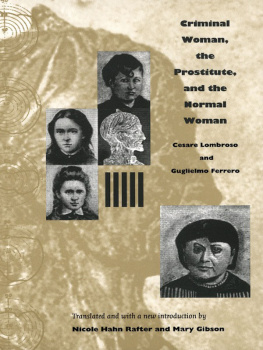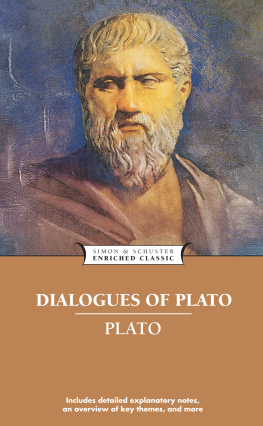Cesare Pavese - Dialogues with Leucò
Here you can read online Cesare Pavese - Dialogues with Leucò full text of the book (entire story) in english for free. Download pdf and epub, get meaning, cover and reviews about this ebook. year: 0, genre: Art / Prose. Description of the work, (preface) as well as reviews are available. Best literature library LitArk.com created for fans of good reading and offers a wide selection of genres:
Romance novel
Science fiction
Adventure
Detective
Science
History
Home and family
Prose
Art
Politics
Computer
Non-fiction
Religion
Business
Children
Humor
Choose a favorite category and find really read worthwhile books. Enjoy immersion in the world of imagination, feel the emotions of the characters or learn something new for yourself, make an fascinating discovery.

- Book:Dialogues with Leucò
- Author:
- Genre:
- Year:0
- Rating:3 / 5
- Favourites:Add to favourites
- Your mark:
- 60
- 1
- 2
- 3
- 4
- 5
Dialogues with Leucò: summary, description and annotation
We offer to read an annotation, description, summary or preface (depends on what the author of the book "Dialogues with Leucò" wrote himself). If you haven't found the necessary information about the book — write in the comments, we will try to find it.
Dialogues with Leucò — read online for free the complete book (whole text) full work
Below is the text of the book, divided by pages. System saving the place of the last page read, allows you to conveniently read the book "Dialogues with Leucò" online for free, without having to search again every time where you left off. Put a bookmark, and you can go to the page where you finished reading at any time.
Font size:
Interval:
Bookmark:
Had it been possible, I would gladly have done without allthis mythology. But myth, it seems to me, is a language ofits own, an instrument of expression. There is nothing arbitraryabout it. It is a seedbed of symbolic forms, possessing, likeall languages, its own rage of meanings which can beconveyed in no other way. When we retell an old mythaproper name, an action, a heroic featwe are expressing, withthe utmost economy of means, a general and comprehensivefact, a core of reality which quickens and feeds a wholeorganic growth of passion and human existence, an entireconceptual complex. If this mythical name or action alsohappens to be familiar to us from childhood, from ourschooldays, so much the better. What is more acutelydisturbing than to see familiar stories troubled into new life?In these dialogues I have confined myself to Greekmythology. For obvious reasons these myths have never losttheir popularity; they can count on both an immediate and atraditional acceptance. At all costs I wanted to avoidwhatever is shapeless, irregular, accidental; even in subjectmatter, I wanted to confine myself within a given frame; Ihave tried for a concrete, finite presence. A true revelation,I am convinced, can only emerge from stubborn concentrationon a single problem. I have nothing in common withexperimentalists, adventurers, with those who travel in strangeregions. The surest, and the quickest, way for us to arouse thesense of wonder is to stare, unafraid, at a single object.Suddenlymiraculouslyit will look like something we havenever seen before.
It seems likely that Ixion was condemned to Tartarusbecause of his presumptions. But that he fathered theCentaurs on the clouds is false, since the race of Centaursalready existed at the time of his son's marriage.The Lapiths and the Centaurs belong to the ageof the Titans, when very different creatureswere still permitted to mate and interbreed. Theresult was that swarm of monsters which Olympuslater pursued with implacable hatred.
The Cloud: Ixion, there is a law and we must obey it.
Ixion: The law has no power here, Nephele. Here the law is theglacier, the storm, the darkness. And when at last theweather clears and you drift softly toward the peak, it's notime then to be thinking about the law.
The Cloud: There is a law, Ixion, which didn't exist before. Astronger hand now masses the clouds.
Ixion: That hand doesn't reach here. Look, the weather's clear,and you're laughing, aren't you? And when the sky turnsblack and the wind howls, who cares about the hand thatscatters us like rain? That was what happened in the dayswhen there was no master. Nothing has changed up here onthe mountains. We're used to all this.
The Cloud: Much has changed on the mountains. Pelion knowsit. Ossa and Olympus know it. Wilder mountains know ittoo.
Ixion: What has changed on the mountains, Nephele?
The Cloud: Not the sun, not the rain, Ixion. Man's fate haschanged. There are monsters. A limit has been imposedupon you mortals. The rain, the wind, the peak, and theclouds are no longer yours to possess. You can no longerhold them in your arms, live with them. Other hands nowhold the world. There is a law, Ixion.
Ixion: What law?
The Cloud: You already know. Your fate, the limit imposedupon you
Ixion: I hold my fate in my fist, Nephele. What has changed?Can these new masters stop me from throwing bouldersfor the joy of it? Or from going down to the plain andbreaking an enemy's back? Are they any more terrible thanfatigue and death?
The Cloud: That's not it, Ixion. You can still do all that, andmore besides. But you can no longer mate with us, thenymphs of the wind, the goddesses of the earth. Destiny haschanged.
Ixion: No longer? What do you mean, Nephele?
The Cloud: I mean that if you try to do what you once did, you'lldo something terrible. Like a man who tries to embrace afriend and strangles him, or is strangled himself.
Ixion: I don't understand. You mean you're leaving the mountain?You're afraid of me?
The Cloud: I'll be here on the mountain, here and everywhere.But I'm out of your reach, Ixion. You're powerless againstthe rain and the wind. You must bow your head. That'syour only salvation.
Ixion: You're afraid, Nephele.
The Cloud: Yes, I'm afraid. I've seen the mountain peaks. ButI'm not afraid for myself, Ixion. I cannot suffer. I'm afraidfor youyou who are only men. These mountains whereyou were once the masters, where you used to run, andthese creatures, our children, conceived when we were bothfree, now tremble at a nod. We are all the slaves of astronger hand. The Centaurs, sons of the wind and therain, are hiding in the deep ravines. They know they aremonsters.
Ixion: Who says so?
The Cloud: Don't defy that hand, Ixion. It is fate. I've seenothers, more reckless than you or the Centaurs, hurl themselvesfrom the cliff and not die. Understand me, Ixion.Death, in which your courage was defined, can be takenfrom you, like a blessing refused. Do you know this?
Ixion: You've told me so before. What does it matter? We'lllive more intensely.
The Cloud: You can't be serious. You don't know the immortals.
Ixion: I want to know them, Nephele.
The Cloud: Ixion, you think they're presences like us, like Night,Earth, or old Pan. You're young, Ixion, but you were bornunder the old dispensation. For you there are no monsters,there are only friends. For you death is something thathappens, like day, like night. You're one of us, Ixion. Whatyou are is what you do, and that is all. But for them, theimmortals, everything you do has a meaning that lingers.And they probe everything from far off, with their eyes,their nostrils, their lips. They are immortal and they cannotlive for themselves alone. What you achieve or don'tachieve, what you say, what you search forall these thingsgladden or displease them. And if you offend themif youmake the mistake of disturbing them on their Olympusthey swoop down upon you, bringing deaththe deathwhich they know, a bitterness which lasts, which is feltforever.
Ixion: We can still die.
The Cloud: No, Ixion. They will turn you into a kind of shadow,a shade that wants to live but never dies.
Ixion: Have you seen them, these gods of yours?
The Cloud: I have seen them... Oh Ixion, you don't knowwhat you're asking.
Ixion: I've seen some of them too, Nephele. I don't find themso terrible.
The Cloud: I knew it. Your fate is sealed. Which one did yousee?
Ixion: How could I tell? It was a young man. He was walkingbarefoot through the forest. He passed by me, but didn'tspeak. Then he vanished before a cliff. For a long timeI stood there looking for him, too amazed to move. I wantedto ask him who he was. He seemed to be a creature of flesh,like you.
The Cloud: Is he the only one you saw?
Ixion: I saw him again in a dream, with the goddesses. I seemedto be standing beside them, talking and laughing with them.And they were telling me the same things that you're saying,but without fear, without trembling like you. We talkedtogether of fate and death. We talked about Olympus. Welaughed at the ridiculous monsters
The Cloud: O Ixion, Ixion, your fate is sealed! Now you knowwhat has changed up there above the mountains. Andyou've changed too. And you think you're more than a man.
Ixion: I tell you, Nephele, that you're like them. Why shouldn'tI admire them, at least in a dream?
The Cloud: Fool, you can't stop at dreams. You'll climb up tothem, aspire to them. You'll do something terrible. Thenthat death of theirs will come.
Ixion: Tell me all the goddesses' names.
The Cloud: You see? Dreaming isn't enough for you now.You believe in your dream as if it were real. I implore you,Ixion, don't climb to the top. Think of the monsters andhow they were punished. The same thing will happen toyou.
Font size:
Interval:
Bookmark:
Similar books «Dialogues with Leucò»
Look at similar books to Dialogues with Leucò. We have selected literature similar in name and meaning in the hope of providing readers with more options to find new, interesting, not yet read works.
Discussion, reviews of the book Dialogues with Leucò and just readers' own opinions. Leave your comments, write what you think about the work, its meaning or the main characters. Specify what exactly you liked and what you didn't like, and why you think so.








